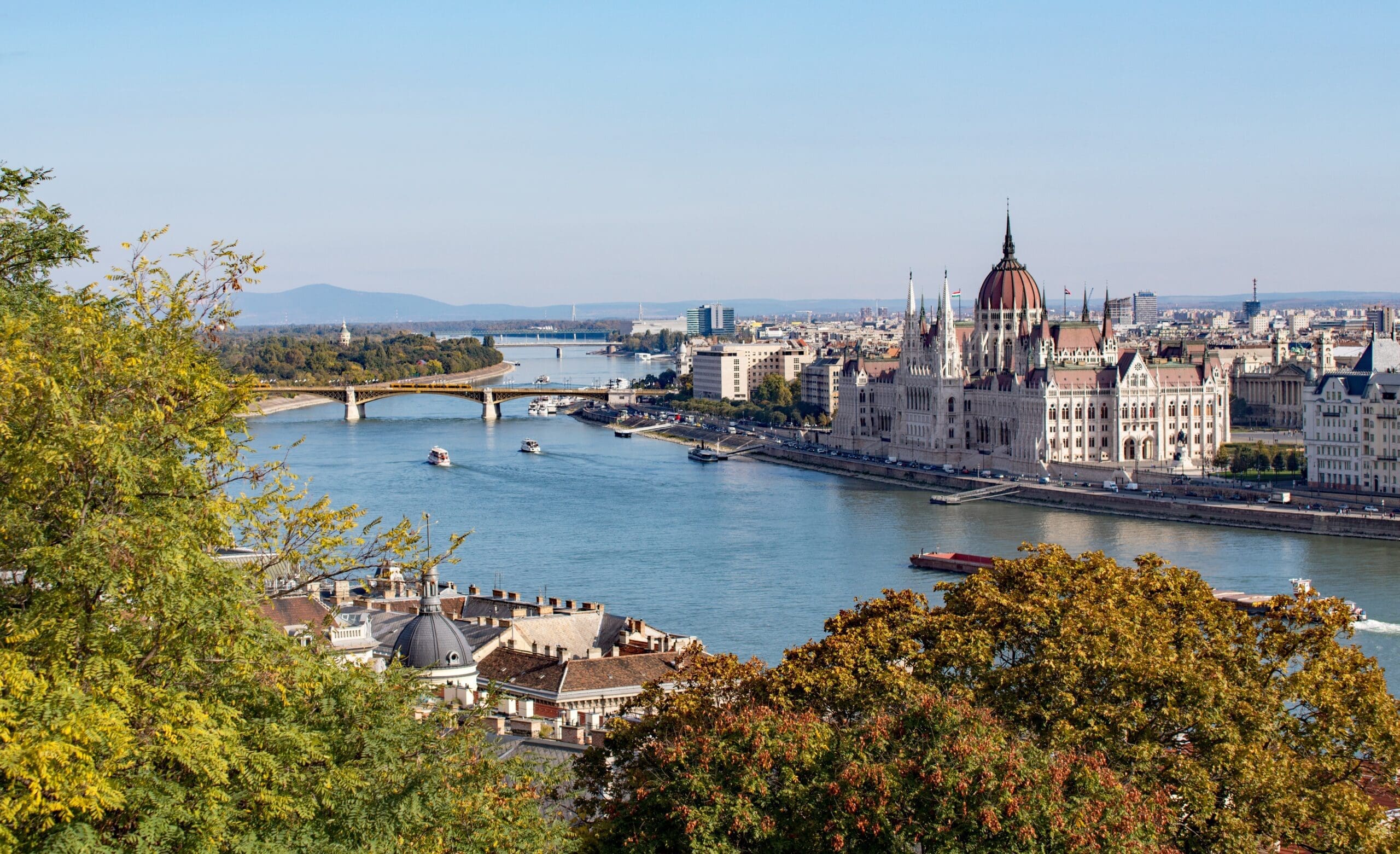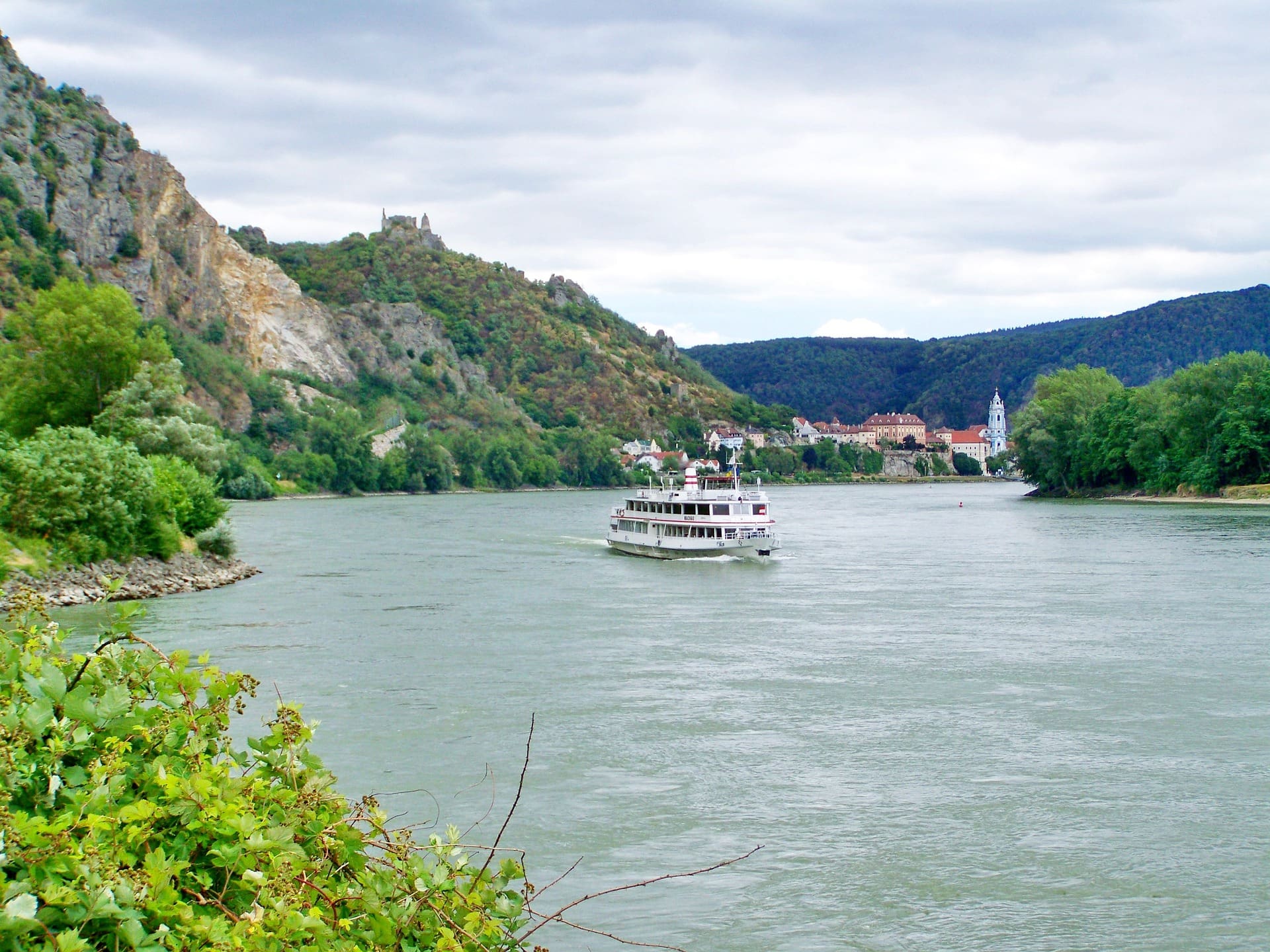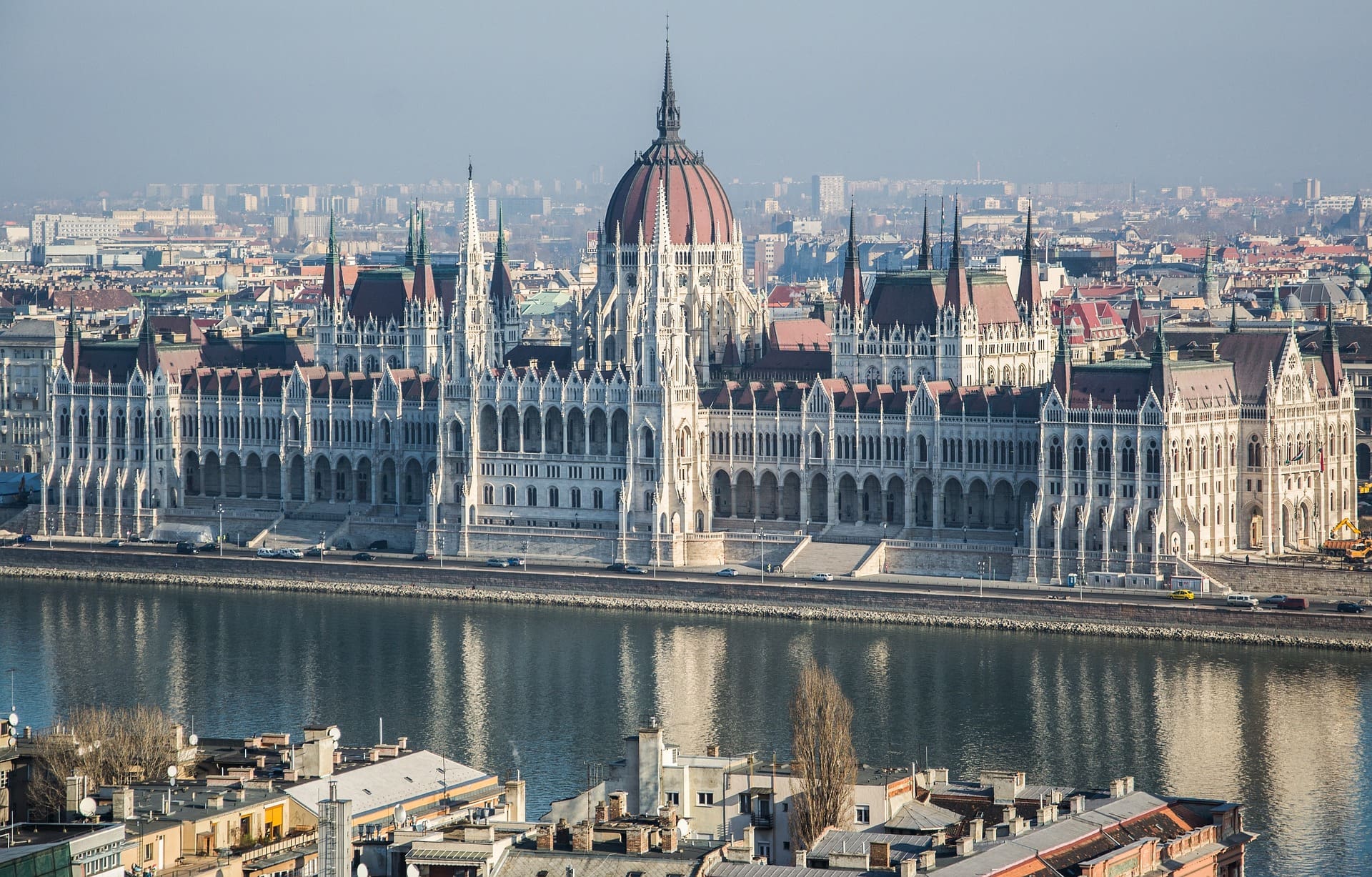Hungary
historic, cultural, thermal, danube, paprika
About Hungary
Culture and Religion
Where to go
How to get there
Visa Requirements
Travelling Budget
About Hungary
Hungary, officially known as the Republic of Hungary, is a landlocked country located in Central Europe. It shares its borders with Austria, Slovakia, Ukraine, Romania, Serbia, Croatia, and Slovenia. With a population of over 9.7 million people, Hungary is known for its rich history, vibrant culture, and breathtaking landscapes.
One of the most prominent aspects of Hungarian culture is its language, which is distinctly unique and belongs to the Finno-Ugric language family. The capital city, Budapest, is a major cultural and economic hub, famous for its stunning architecture, including the iconic Chain Bridge and the majestic Hungarian Parliament Building.
Hungary is also renowned for its delicious cuisine. Traditional Hungarian dishes like goulash, paprikash, and chimney cake (kurtoskalacs) are staples of the country’s gastronomy. Paprika, a spice made from dried and ground peppers, holds a special place in Hungarian cuisine, adding a distinctive flavor to many dishes.
The country is abundant in natural beauty, with the mighty Danube River flowing through its heart. Lake Balaton, the largest lake in Central Europe, is a popular destination for tourists seeking relaxation and water activities. Hungary is also home to several thermal baths, such as the famous Széchenyi Thermal Bath, which are believed to have healing properties.
From a historical perspective, Hungary has a fascinating past. It was part of the Austro-Hungarian Empire until the end of World War I when it became an independent republic. Hungary was later occupied by Nazi Germany during World War II and fell under the influence of communism after the war. The country transitioned to democracy in 1989, becoming a parliamentary republic.
Today, Hungary is a member of the European Union and NATO, playing an active role in international affairs. It has a strong economy, with sectors such as automotive, pharmaceuticals, and information technology contributing significantly.
In conclusion, Hungary is a captivating country with a rich cultural heritage, remarkable landscapes, and a resilient spirit that reflects its complex history. Whether visiting Budapest, exploring its charming towns, or immersing oneself in its vibrant festivals, Hungary offers a memorable experience for all who venture there.
Culture and Religion
Hungary boasts a diverse and rich cultural heritage, shaped by a long and complex history. The country is known for its contributions to art, music, literature, architecture, and folklore.
Hungarians take great pride in their cultural traditions, which are deeply rooted in their language and customs. Hungarian folk art, characterized by intricate patterns and vibrant colors, is highly regarded and often seen in traditional costumes, pottery, and embroidery. Folk dances, including the famous Csardas, are a beloved part of Hungarian culture and are performed at various cultural events and festivals.
Religion has also played a significant role in shaping Hungarian culture. The majority of Hungarians identify as Roman Catholic, with the Catholic Church having a profound influence on the country’s history and traditions. Numerous cathedrals and churches, such as the Esztergom Basilica and Matthias Church in Budapest, stand as magnificent examples of religious architecture.
Additionally, Hungary is home to several ethnic minority groups, including sizable populations of Romani people, Germans, Slovaks, and others. These communities have their unique cultural customs and contribute to the overall cultural tapestry of Hungary.
Music is another essential aspect of Hungarian culture. Hungary has produced world-renowned composers, such as Franz Liszt, Zoltan Kodaly, and Bela Bartok. The Hungarian State Opera House in Budapest is a cultural landmark and offers exceptional performances.
Literature holds a special place in Hungarian culture, with numerous celebrated authors and poets, including Imre Kertesz, Sándor Márai, and Attila József. Hungarian literature reflects the country’s history, struggles, and identity.
Overall, Hungarian culture is a fusion of its historical influences, traditional customs, religious practices, and artistic expressions. It is a testament to the resilience, creativity, and diversity of the Hungarian people, making Hungary a captivating destination for those eager to explore and embrace its cultural offerings.
Where to go

Budapest
The capital city of Hungary, Budapest, is undoubtedly a highlight. It is known for its stunning architecture, including the Hungarian Parliament Building, Buda Castle, and Fisherman’s Bastion. Explore the thermal baths, such as the historic Széchenyi or the beautiful Gellért Baths. Take a stroll along the Danube River or visit the impressive Heroes’ Square. Budapest offers a vibrant nightlife, with trendy ruin bars, delicious cuisine, and a lively atmosphere.

Lake Balaton
Located in western Hungary, Lake Balaton is the largest lake in Central Europe. It is a popular destination for both locals and tourists, offering opportunities for swimming, sailing, and sunbathing. Explore charming lakeside towns like Siófok or Tihany, visit historic castles, or indulge in the local wine scene. Lake Balaton is a great place to relax and enjoy the natural beauty of Hungary.

Danube Bend
The Danube Bend is a picturesque region in Hungary, where the Danube River takes a dramatic turn. Take a boat ride on the river, visit the stunning Visegrad Castle, or hike in the nearby Pilis Mountains. The region offers breathtaking natural scenery, historic sites, and charming towns like Esztergom, home to the largest church in Hungary.

Hortobágy National Park
For nature lovers, Hortobágy National Park, a UNESCO World Heritage Site, is a must-visit. It is the largest natural grassland in Europe and provides a habitat for diverse wildlife. Take a horse-drawn carriage ride, witness traditional Hungarian shepherding practices, or spot rare bird species. The park offers a unique and immersive experience of Hungary’s natural landscapes.
Note: These are just a few highlights of Hungary, but the country has much more to offer, including wine regions, beautiful countryside, and unique cultural traditions. Exploring these highlights will provide you with a well-rounded experience of Hungary’s history, natural beauty, and vibrant culture.
How to get there
Getting to Hungary is relatively straightforward, considering its central location in Europe and its well-connected transportation system. Here are a few common ways to reach Hungary:
By Air: The most convenient and fastest way to travel to Hungary is by air. Budapest Ferenc Liszt International Airport is the main international gateway, serving numerous direct flights from major cities around the world. Several major airlines operate regular flights to Budapest, making it easily accessible.
By Train: Hungary has an extensive rail network that connects it with various European cities. International trains arrive at key destinations like Budapest or other major cities such as Debrecen and Szeged. Train travel can be affordable and offers scenic views along the way.
By Car: Hungary is accessible by road from neighboring countries. It is well-connected to several European highways, making it easy to reach by car. Border crossings are typically smooth, and road conditions are generally good.
By Bus: Several international bus companies offer routes to and from Hungary. Budapest is a central hub for bus services, with connections to various European destinations. Buses can be a cost-effective option for travel within Europe.
By River Cruise: If you prefer a more scenic and leisurely option, river cruises along the Danube River offer a unique way to reach Hungary. Budapest is a popular stop on many river cruise itineraries, allowing travelers to enjoy the stunning views along the river.
Once you arrive in Hungary, the country has an efficient public transportation system, including trains, buses, trams, and the metro, making it easy to navigate within the country and explore its diverse cities and regions.
Visa Requirements
Visa requirements for Hungary vary depending on your nationality and the purpose and duration of your visit. Here is a general overview:
Schengen Visa: Hungary is a member of the Schengen Area, which means that travelers from many countries can visit Hungary without a visa for tourism, business, or visiting friends and family for up to 90 days within a 180-day period. This applies to citizens of most European Union (EU) countries, as well as countries such as the United States, Canada, Australia, New Zealand, Japan, and many others. Please note that specific visa-free requirements may vary, so it is best to check the official consulate or embassy website of your country for the most accurate and up-to-date information.
Schengen Visa Application: If you are not eligible for visa-free travel or plan to stay in Hungary for longer than the visa-free period allows, you will need to apply for a Schengen Visa. This applies to citizens of countries not listed on the visa-exempt list. The application process requires submitting the necessary documentation, such as a completed application form, a valid passport, proof of travel insurance, accommodations, financial means, and supporting documents based on the purpose of your visit.
Work or Student Visa: If you plan to work, study, or engage in other long-term activities in Hungary, you will need to apply for the appropriate visa or residence permit. These types of visas have specific requirements and may require additional documentation, such as a job offer letter or acceptance letter from an educational institution.
It is essential to check the specific visa requirements for your country and situation well in advance of your planned travel to Hungary. Contact the Hungarian embassy or consulate in your home country for the most up-to-date and accurate visa information and application procedures.


Travelling Budget
The cost of traveling to Hungary can vary depending on your travel style, preferences, and the duration of your stay. Here is a general overview of the typical expenses you can expect:
Accommodation: The cost of accommodation in Hungary can vary significantly, depending on the city and the type of accommodation you choose. In Budapest, you can find a range of options from budget hostels to luxury hotels. On average, you can expect to spend around $30-100 per night for mid-range accommodation.
Food: Hungary is known for its delicious and affordable cuisine. When dining out, a meal at a moderately priced restaurant can cost between $7-15 per person, while a meal at a more upscale restaurant may cost $20 or more. If you prefer to cook your meals, buying groceries can be quite affordable.
Transportation: Public transportation, including buses, trams, and the metro, is relatively inexpensive in Hungary. A single ride ticket in Budapest costs approximately $1.5. If you plan to travel within the country, train tickets or intercity bus fares can vary based on the distance, but they are generally affordable.
Sightseeing and Activities: Hungary offers a variety of cultural attractions, museums, and activities. Entrance fees to popular sights like the Hungarian Parliament, Buda Castle, or the Széchenyi Thermal Bath can range from $5-15 per person. However, there are also many free or low-cost activities, such as exploring the beautiful parks or taking in the vibrant street art.
Overall, a reasonable daily travel budget in Hungary would range from $50-100 per person, depending on your preferences and the level of comfort you desire. It is always a good idea to budget for additional expenses, such as souvenirs, extra activities, or unforeseen costs.
What makes your journey easier
Everything you need to know about what to bring to make your travels easier, more safe and fun
Be Mindfull
Gadgets
Gear
Insurance
Visa










![Hungary 5x [parliament-building]](https://travelhd.nu/wp-content/uploads/2023/08/Hungary-5x-parliament-building.jpg)
![Hungary 4x [sauerkraut soup]](https://travelhd.nu/wp-content/uploads/2023/08/Hungary-4x-sauerkraut-soup-scaled.jpg)













